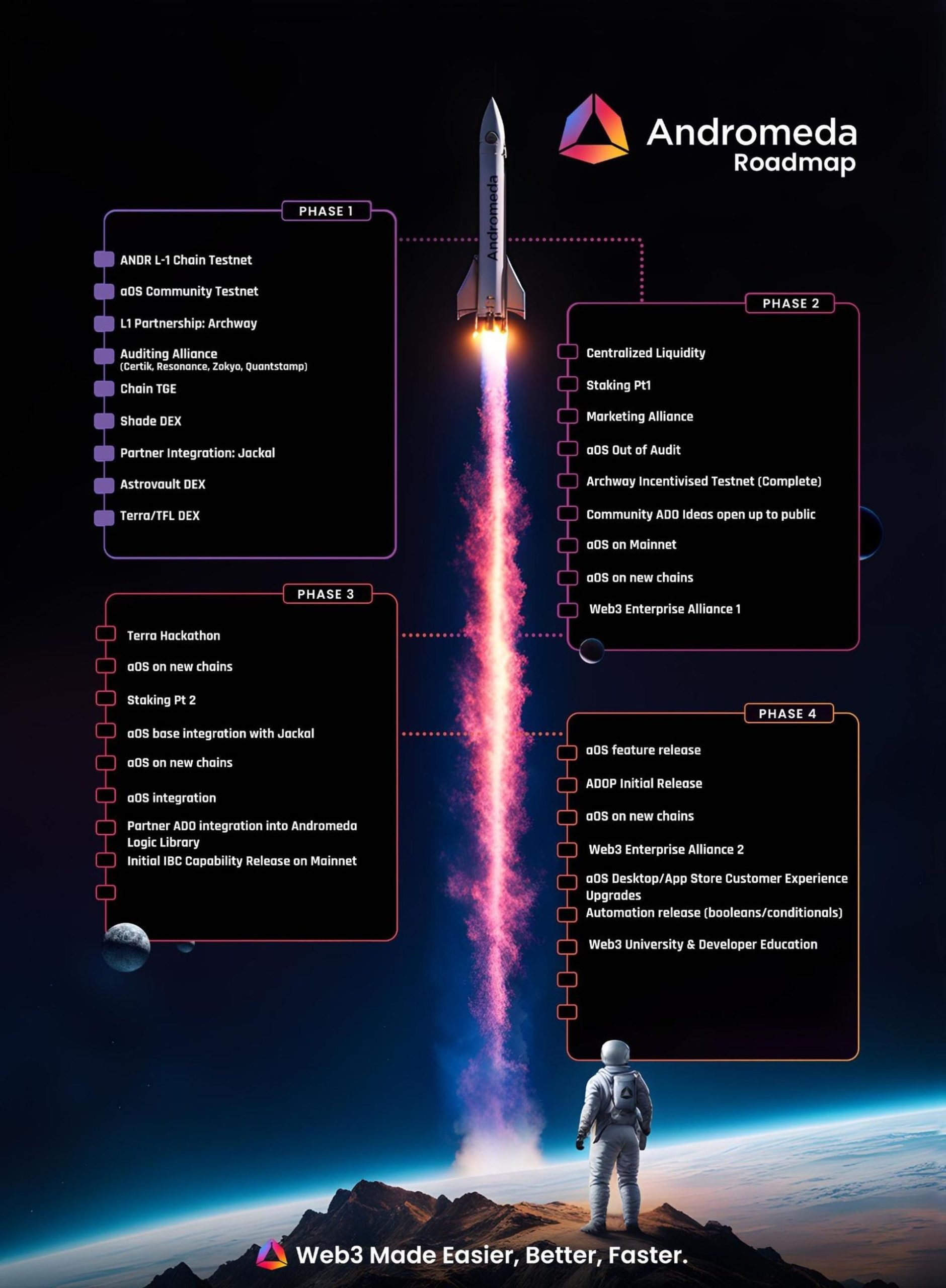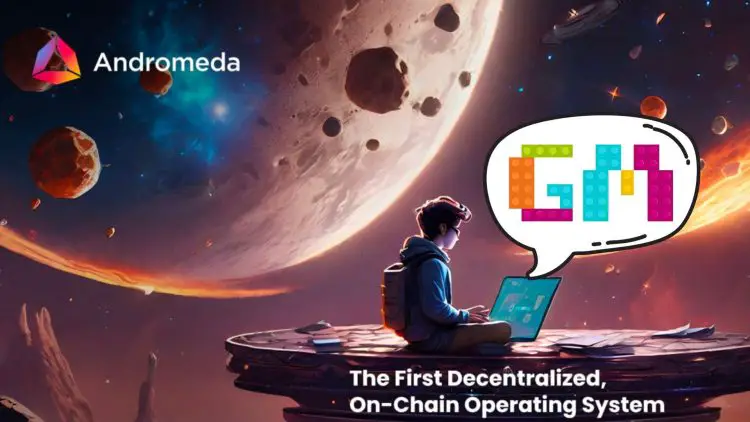Andromeda is set to launch its Andromeda Operating System (aOS) by the end of Q1 2024. Currently active in testnet, the aOS offers a cross-chain and multichain operating system for Web 3 environments. It aims to provide developers with a suite of tools to build complex dApps while simplifying the process of interacting with Web 3 for users.
As the first native Web 3 operating system, Andromeda will help to accelerate the creation of new dApps and streamline the growth of the Web 3 ecosystem. With an intuitive, browser-based interface, Andromeda prioritizes the user experience, ensuring that users and developers can get started with Web 3 projects in a fraction of the time.
For developers, the Andromeda Digital Objects (ADOs), made using the ADO Builder, provide building blocks to produce decentralized applications rapidly. Instead of working from scratch, developers will be able to create dApps in a low-code environment that streamlines the development process from months to minutes. Found in the Andromeda Logic Library (ALL), this approach streamlines the entire development process. This is coupled with the aOS File System that offers Web 3 assets to the masses with only a few clicks.
Alongside expediting the process of creating apps, the aOS will also offer granular control over privacy, cost, and central capabilities. Each developer will be able to carefully construct their applications, using resources in an effective manner and achieving the final product that they envisioned.
Developers can upload their completed dApps directly to the Andromeda App Store, which will act as a catalog of all of the available projects on the ecosystem. Apps on the store can be monetized, with popular apps that receive compensation from users. The App Store will also provide pre-made application templates that developers can use to brand and customize their applications in minutes.
Another important aspect of the Andromeda ecosystem to mention is the ability to find funding on the platform. For developers who need to find additional funding to create their projects, the pre-built crowdfunding platform via the App Store will handle all the intricacies of the process. The App Store will manage everything from on-demand mining and taxes to royalty management, helping to streamline the development process further and mitigate potential barriers to entry.
One of the core benefits of the Andromeda Operating System is its prioritization of multichain and cross-chain development. Currently, applications on the aOS are compatible with any blockchain within the Cosmos ecosystem. Yet, after the future integration with Axelar and Landslide, dApps on this system will be able to interoperably enter into Avalance and Ethereum ecosystems.

The connective force behind this interoperability is the Inter-Blockchain Communication (IBC) standard, which allows applications to extend across multiple interconnected chains. The unique ability to adapt to these distinct environments, projects, oracles, enterprise systems, and networks demonstrates the versatility and utility of the platform.
The importance of an interoperable system has only grown over recent years. Commenting on this, Mant Hawkins, a Core Contributor at Andromeda, states, “Andromeda is the latest chapter in the long history of unexpected innovations that powerfully merge technology, design, and function into something surprising that accelerates the adoption of a new industry. We see aOS as the new standard for web 3, offering boundless opportunities for experienced builders but also inviting less experienced and web 2 developers to join the movement with a NoCode/LowCode experience made for speed, creativity, and delight.”
Reacting to the promise of the interconnectivity of aOS, the initial token sale of ANDR, the native token of Andromeda, was an astounding success. Launched on the Shade Protocol, the token used to buy ANDR, SHD, pumped over 140% in the days and hours leading up to the event. The increased community support and interest in the token reflect the trust in this project, with aOS representing a truly multichain future that many blockchain experts have been seeking for years.
As aOS continues through its testnet and launches to the mainnet, we should see a new wave of opportunities for interoperable development flood the market. With data privacy, speed, interoperability, and user-friendly building at its core, the Andromeda Operating System appears to be a highly notable project of 2024.
Featured image credit: Andromeda / X





